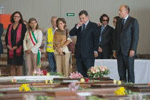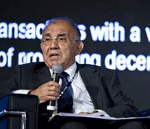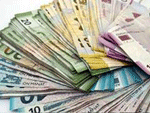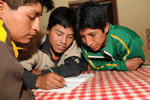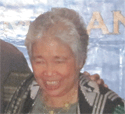Social Watch News
|
Published on Fri, 2013-10-25 11:43
» |
Published on Fri, 2013-10-25 08:51
More than 300 Eritrean refugees lost their lives last October 3 off the coast of the Italian island of Lampedusa. The survivors say that the Italian Navy could have prevented the deaths. The tragedy exposed the failings of the EU’s migration policies, and its failure to protect refugees - a legal obligation under International law. This week there was a commemorative ceremony in Italy for those who died. The catholic priest Father Mussie Zerai and the journalist Meron Estefanos, founder of the International Commission on Eritrean Refugees witness the ceremony, and denounce it as a charade - a gimmick arranged for the convenience of politicians and an offense to the families of the victims. Read the full statement of Father Zerai and Estefanos |
Published on Thu, 2013-10-24 13:04
There are two major failings in policy interventions in the crisis in the US and Europe – the reluctance to remove the debt overhang through timely, orderly and comprehensive debt restructuring and the shift to fiscal austerity after an initial reflation. These have resulted in excessive reliance on monetary policy, including non-conventional means. However, monetary measures have largely been ineffective in stimulating credit for the expansion of spending on goods and services – hence, the crisis is taking too long to resolve. Moreover, they have created financial fragility not only in the advanced economies practising such policies, but also globally and particularly in emerging economies. Exit from the policy of ultra-easy money is full of pitfalls with attendant consequences for growth and stability. |
Published on Wed, 2013-10-23 11:25
Radio Liberty discussed Azerbaijan’s place in the Open Budget Index (OBI) last week, as part of the “Joint Advocacy Platform” project, just on the eve of 2014 budget discussions in Parliament. Kenan Aslanli, National Budget Group (NBG) member (and Social Watch member in Azerbaijan) and social and youth activist Bakhtiyar Hajiyev participated in the program. |
Published on Mon, 2013-10-21 13:02
“When you live in a shelter, you face discrimination every day – from the food you eat to the way people treat you in the street, you face discrimination,” began Jose. A homeless shelter resident, Jose spoke at the commemoration of the International Day for the Eradication of Poverty at the United Nations on behalf of homeless people and people living in homeless shelters. This day is commemorated every year on October 17th by International Movement ATD Fourth World. In his message, Jose clearly underlined the essence of the theme this year, “Working together towards a world without discrimination: Building on the experience and knowledge of people in extreme poverty.” |
Published on Mon, 2013-10-21 08:47
Twenty years after the 1993 World Conference on Human Rights and its Vienna Declaration and Programme of Action were adopted, more than 140 civil society representatives from around the world gathered at Vienna to commemorate the occasion. The 2013 conference, convened under the theme “Strengthening the Human Rights Movement Globally: Vienna +20,” was held in Vienna on June 26-27, and agreed on an Outcome Document that was presented by civil society at a High Level Conference on Vienna +20 hosted in the same city by the Austrian government. |
|
Published on Fri, 2013-10-18 07:14
» |
Published on Thu, 2013-10-17 14:44
In the Philippines, Social Watch Philippines monitors the MDG programs as implemented by the government. Its main advocacy is more government spending for health, education, agriculture, the environment, and for social protection for all. It has organized the Alternative Budget Initiative (ABI) which proposes alternative budgets for these MDG-related expenditures. |
| Source: . Published on Wed, 2013-10-16 23:00 |
|
Source: . Published on Wed, 2013-10-16 23:00
- With the richest one percent of the population now owning 40 percent of global assets, and the bottom half sharing just one percent, inequality is fast being recognised as a stubborn underlying |
SUSCRIBE TO OUR NEWSLETTER

